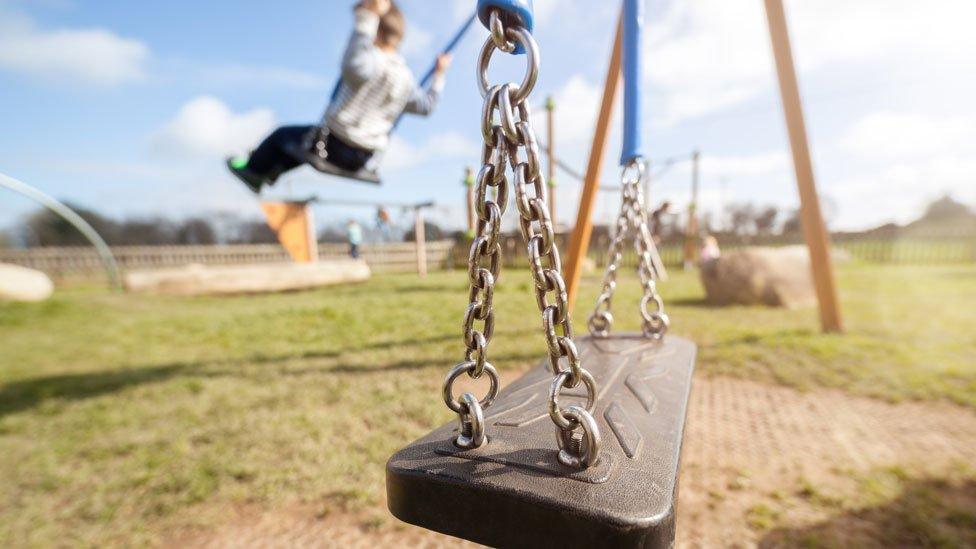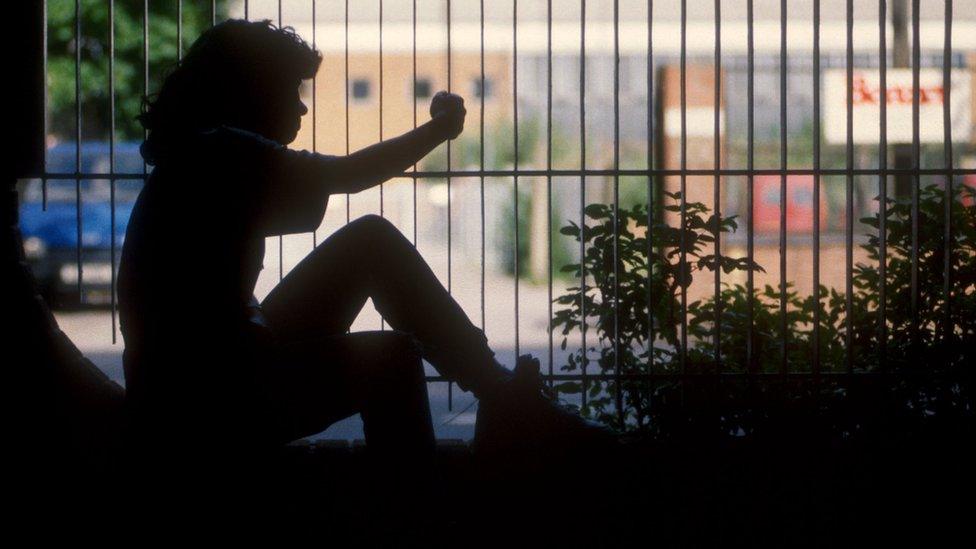Missing child appeals 'can leave negative online footprint'
- Published

More should be done to protect former missing children whose names and images remain online long after they are found, a report says.
The study by Portsmouth University and Missing Children Europe raises concerns about the "digital footprint" left over from publicity appeals.
Portsmouth University's Dr Karen Shalev-Greene said she wanted the UK government to take notice.
The report surveyed staff from 19 missing children's hotlines in Europe.
It said information about missing children was increasingly being shared online and on social media.
Right to be forgotten
It suggested missing children who had returned should be given legal help to ask technology firms to remove online material about them.
This is already offered in Belgium, where a missing child hotline, Child Focus, helps children assert a "right to be forgotten" online.
In 2014, the European Court of Justice ruled people had the right to be forgotten, which involves removing search engine links to web pages about them.
The report's authors - who surveyed people from 19 countries, including Austria, Greece and the UK - said at least 250,000 children were reported missing each year in the EU.
Dr Shalev-Greene said the study was the first of its kind and that its intention was to "raise the issue" and prompt debate.
She said: "A public appeal for a missing child is always launched without the child's consent.
"Yet, once found, the child must live with the consequences of their image being in the public domain."

She added that once a picture had been released, the child did not seem to have the legal right "to control the use of those images".
The mother of a girl who is now 18, who went missing as a younger teenager, told the researchers: "We are concerned because two and a half years after my daughter's disappearance, whenever she searches for her name on the internet, she finds websites where she is still mentioned."
The mother said that her daughter "feels that the information about her disappearance exposes her in a negative way".
Dr Shalev-Greene said parents "would do anything" to find their children and that if one child was found out of 1,000 whose information was made public online, that would be a success.
Omit surnames
But she added: "We need to understand the impact it has, both good and bad. We're saying, 'Be more aware of the downside and support the children and their families once they come back.'"
Dr Shalev-Greene also suggested that missing child appeals could just use a child's first name and picture, and not a surname, which would help safeguard their privacy upon their return.
Her co-author, Delphine Moralis, secretary-general of Missing Children Europe, said: "Better strategies must be developed to prevent these negative consequences."
She added that further evidence was needed on the effectiveness and impact of appeals.
Dr Shalev-Greene said of her call for the UK Parliament to address the issue: "We would like to see it discussed at that kind of level. It is something we've not seen discussed before.
"I think we're catching up with the reality of the practice."
- Published24 March 2017

- Published7 March 2017

- Published11 February 2016

- Published28 July 2015

- Published24 August 2012
